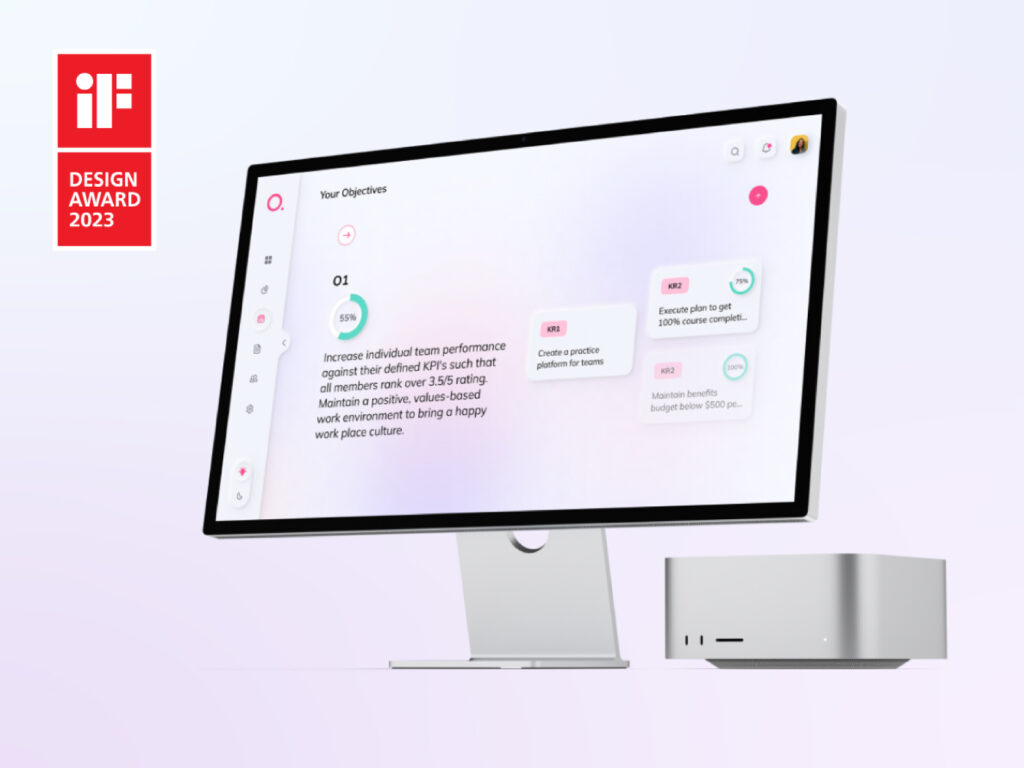What is the one thing that we humans find most endearing about our interactions and relationships?
It’s when someone pays attention to us and delivers what we like, just how we like it. Businesses that know and act upon this are the ones that turn their customers into loyalists for life.
Salesforce Einstein, for instance, has AI-driven personalization features that analyze customer data, predict future behavior, and provide personalized recommendations to sales and marketing teams for more successful conversions.
Zendesk leveled up its customer service by utilizing AI to provide personalized support and faster response times, freeing up support teams to handle more complex issues.
Why is AI-driven Personalization Non-negotiable in B2B Apps?
B2B user journeys are complex, non-linear processes covering multiple stakeholders over a prolonged time frame. AI plays a crucial role in decoding these complexities. Machine learning algorithms can analyze vast amounts of data, including user behavior, preferences, and historical interactions. This deep understanding enables AI systems to craft personalized experiences that resonate with each user.
92% of organizations are leveraging AI-driven personalization to deliver their customers what they really want, which creates endless avenues to increased profitability and fast growth.
How Koru UX Delivers Impact Using AI-driven Personalization
AI-driven Content Personalization
Content not only drives engagement but is also key to enhancing user performance, which is a crucial metric for B2B apps. Personalizing content using AI-powered tools can analyze the type of content users interact with, their preferences, and even the time of day they are most active. This data-driven approach enables B2B product leaders to deliver content that aligns with the user’s interests and needs.
We designed a telehealth-integrated EHR solution that enabled doctors to view clinical details from the patient’s history depending on the context of the patient’s visit. This AI-led feature presented patient information that was most relevant to the doctor and helped in accurate, quick diagnosis.

Most significantly, we added an AI-powered Natural Language Processing (NLP) feature which simplified accents and offered translations during the telehealth calls in real-time which helped negate the cognitive burden of post-call documentation.
- This telehealth-integrated EHR is being used by 80,000 facilities encompassing 130,000+ physicians
- It has been downloaded 100,000+ times on the App Store and Play Store
- It carries an average rating of 4.0
Our project won the iF Design Award 2021 in the UI Design category, read the full case study here.
Seamless Interactions through AI-Driven Personalization
User experience is a critical aspect of any application, and AI can play a pivotal role in refining and personalizing this experience. AI-driven UX adapts dynamically to user behavior, ensuring the interface becomes more intuitive and user-friendly.
Our client, Ayraa.io approached us to design a minimal yet functional OKR application to help users draft their KPIs and Objectives accurately and with ease.

Drafting objectives and getting approvals for them is a stressful and long-drawn process in many organizations. We designed a simple solution around the smart approach to OKRs by removing 2 of its biggest barriers – the difficulty involved in drafting goals accurately and ensuring they are approved and followed.
We implemented an AI-powered assistant within the ORK tool, which discreetly proffers help in drafting KPIs, empowering the users to draft them more efficiently. This AI assistant helps users build their KPIs, doing much of the heavy lifting associated with the task.
- User trials revealed a 32% drop in time from drafting objectives to approving them based on the key results
- 68% responded that the platform’s form and functionality enabled better tracking and management of goals
This project bagged the iF Design Award 2023 in the UI design category, check out the full case study here.
Challenges in Implementing AI-powered Personalization
While the benefits of AI-powered personalization are evident, it’s crucial to acknowledge the challenges and considerations in its implementation. Remember, AI needs to be implemented to enhance experiences and not hampering or complicating them.
1. Data privacy and security: Personalization relies on extensive data analysis, raising concerns about data privacy. B2B product leaders must prioritize robust security measures to protect user information and comply with data protection regulations.
Algorithm bias: Remember, AI algorithms are only as unbiased as the data they are trained on. Ensuring fairness and avoiding algorithmic bias is a critical consideration in creating personalized experiences that cater to diverse user groups.
User adoption and transparency: Users may be skeptical or hesitant to embrace AI-driven personalization. Providing transparency about how AI is used, allowing users to control their preferences, and demonstrating the tangible benefits of personalization can address these concerns.
What Does the Future Look Like for AI-Powered Personalization?
The journey towards AI-powered personalization in B2B apps is ongoing and promises further innovations. As technology continues to advance, we can anticipate more sophisticated AI models, improved user interfaces, and a deeper understanding of user behavior, leading to even more refined personalized experiences.
The integration of AI into B2B apps is not just a technological upgrade; it’s a strategic move towards delivering unparalleled user experiences. As we navigate the complexities of the B2B landscape, AI emerges as a crucial ally in tailoring experiences for success. We, at Koru UX can help you with designing personalized recommendations and interactions that can not only meet but exceed user expectations, fostering increased engagement and satisfaction. Reach out to us to know how we can help you deliver the right UX by leveraging AI-driven personalization.










